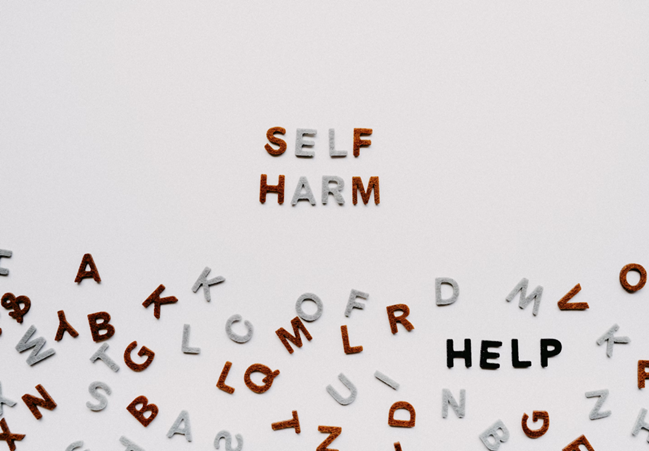Myths About Self-Harm & Teen Mental Health
Self-harming is a part of teen mental health that is difficult to talk about for many parents and teens. At CERTS, we believe that understanding and supporting your teen’s mental health struggles is the first step towards your teen’s healing journey. Let’s look into self-harm behaviors and learn the facts behind the common myths that surround this part of teen mental health.
What is Self-Harm?
If a person is hurting themselves on purpose, it is considered self-harm or self-injury. Teens may self-harm for many reasons including; overwhelming and uncontrollable emotions, trauma, sense of relief and control, and other mental health conditions.
Types of Self-Harm
- Cutting or piercing their skin with sharp objects
- Burning their skin
- Punching or hitting themselves or an object like a wall
- Poisoning themselves with tablets or toxic chemicals
- Misusing alcohol or drugs
- Deliberately starving themselves or binge eating
- Exercising too much
Common Myths About Self-Harm
1) Self-Injury is a Sign of a Suicidal Person or a Suicide Attempt
Studies show that teens who engage with this behavior use self-harm as a way to cope with stress, negative emotions, stress, and pressure. Research also suggests that struggling teens may be using self-injury behaviors as a way to avoid suicide and prolong their life as it provides a sense of relief and control for their emotional pain.
2) People Who Self-Harm Are Crazy
Teen mental health and self-harming can be hard to understand, but labeling these young people as ‘crazy’ or ‘dangerous’ isn’t accurate or helpful for their healing journey. Self-harm is used as a coping mechanism for teens grappling with serious mental health issues and other pressures. This behavior does not mean they are crazy; they are trying to manage their negative feelings in the only way that makes sense to them.
3) Self-Harm is Untreatable
Unfortunately, self-harming is habit-forming and a hard cycle to break, but it certainly is treatable and can be quit. Some of the best ways to discover the underlying issues that cause self-harm are through Cognitive Behavioral therapies, Dialectical Behavior Therapy, experiential therapy, family therapy, or group therapy. There is also the option of medication for teens suffering from depression, anxiety, or other teen mental health conditions. Since self-injury is used as a coping mechanism, it is most important to teach teens how to appropriately handle their negative emotions.
4) People Who Self-Harm Want Attention or Are Manipulative
Self-injury is more about coping with and relieving distressing emotions than it is about manipulating other people. Very few teens report using self-harm as a way to get attention as their primary reason in engaging in this risky behavior. Self-harm is most often done in secret and can be surrounded by feelings of shame and fear. These feelings can make it even harder for teens to come forward and ask for help. Teen mental health is complex and the best way for struggling teens to get the help they need is through non-judgemental support from their family and friends.
How You Can Help Your Struggling Teen
Understanding your teen’s mental health struggles can be difficult, but the first thing you should do as a parent is offer emotional support. It’s natural to feel upset or anxious about your teen engaging with self-injury, but know that you aren’t powerless in this situation. Provide a safe and supportive space for your child to talk to you when they are ready. Be careful not to come off as judgmental when speaking to your teen about why they are self-harming, try listening to them before asking too many questions. Reassure them with positivity about open and honest communication. Let your teen know that they are loved and that you want to help them find a way to better deal with their negative feelings or mental health conditions. If the issue continues, you may need to seek professional help through CERTS Group’s residential treatment centers.
How CERTS Can Help Your Family
At CERTS, we believe that every student deserves a personalized teen mental health treatment plan. We will provide your teen with therapy and academics to support them during their healing journey. We also encourage parent involvement in our youth residential treatment process through therapy, seminars, family activities, and at-home treatment. Self-harm is a serious matter and should be treated sooner rather than later. Call CERTS today to learn more about our residential treatment programs and how we can teach your teen how to cope with their negative emotions, mental health conditions, or other issues they may be struggling with.


